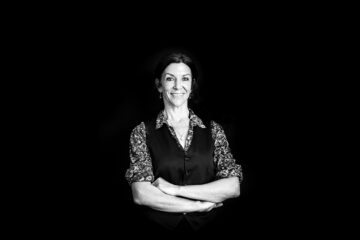Editor’s Note: I am the host, producer and photographer for the We Are Chaffee: Looking Upstream podcast. I also write a monthly guest column related to the podcast for two local newspapers in Chaffee County, Colo.: the Chaffee County Times (Buena Vista) and The Mountain Mail (Salida). This is my column based on my conversation with restorative justice leader Eric S. Lee.
There’s a spark in the eyes of Eric S. Lee. A smile on his face. A positive energy. The kind that radiates from someone who has really learned something about who they are and what they offer this world.
When Lee and I talked for We Are Chaffee’s “Looking Upstream” podcast, I got to learn about how he came to be this man. As often happens, the road of learning in Lee’s life entailed adversity. Sometimes self-inflicted.
I’ve been there. Maybe you have, too. And I have learned that people who veer into the fire, face themselves in the midst of it, and rise from the ashes, are those primed to serve others with a humble clarity. There’s a calm truth about them. One born of honest experience.
As executive director of Full Circle Restorative Justice (FCRJ), Lee is well-suited for the mission. FCRJ’s work primarily focuses on area youth in need. But Lee has hardwon credibility for youth and adults alike, and many years of professional, personal and spiritual experience, to draw upon.
Besides his work as a restorative justice facilitator and activist for criminal justice reform, Lee has a rich history of entrepreneurship and service to others as a chef and restaurateur, life coach, fitness trainer and book author.
On “Looking Upstream,” he and I talk about his early years in Detroit, and the Motown era and other influences in his life as a kid growing up there in the 1960s and ’70s.
We talk about how Eric ultimately left behind a self-destructive lifestyle, and came to the spiritual practices and positive attitude that have led him to his many life successes.
“As I grew into the late ’70s and became a teenager, the influence was smoking pot and every other thing you can get your hands on, and just being a party mammal for a time. Until I reached a point where I just couldn’t stand myself anymore, because I had just gone too far off a ledge,” Lee said.
“Experiencing that had more to do with me turning around and really finding my spirituality and reaching for the highest version of who I am. It was just almost the unconscious, mindless accumulation of self-destructiveness that was condoned from say, the late ’60s through the ’70s, that really led me to saying, ‘Okay, life is more than this and I’m meant to do more than this.’
It’s that kind of self-examination and self-accountability that exudes credibility others listen to. For example, youth who might be on the same life trajectory. Because when we’re in the fire, who better to hear from than someone who knows what that’s like, someone who can guide us out of the flames, and do it with empathy?

Eric S. Lee
That’s Lee. “Listen” to him here, talking about restorative justice in this slice of our “Looking Upstream” podcast conversation:
“Restorative justice is an alternative to the traditional justice system. The traditional justice system is punitive. Restorative justice is restorative or relational, where we try to give offenders, we call them ‘responsible parties,’ the opportunity to accept responsibility for their actions and then repair any harm done, either to a victim, if there’s a victim involved, or a lot of times that harm is done to themselves.
“We try to get them to one, recognize their part and why they’re here, and then, get them the help that they need to heal from those harms that have been placed upon them, that put them in the position to make the decision they made to do something outside the law in the first place.
“It’s a way to impact people who are responsible for harmful or criminal activity and gives them a path to self-development and growth and healing, instead of a punitive system that basically sends them on a corner with other people who have committed crimes, or criminals that end up teaching them how to be better criminals. We find that it is the most impactful way to administer justice.
“We really want to both impact the youth that come through our program, giving them another option and another path for the rest of their lives, being one of purpose and meaning, and also make sure the community stays safer overall.”
Lee recently started a podcast through FCRJ. “The Venn Radio Hour” brings together opposing voices for meaningful discussion of issues that face our communities. The show is available online at khen.org/venn-radio-hour.
Learn more about Eric S. Lee and Full Circle Restorative Justice by listening to our “Looking Upstream” podcast conversation at wearechaffee.org or on any podcast player. (Or using the embedded player above.)
Adam Williams hosts the We Are Chaffee: Looking Upstream podcast every other Tuesday. Follow @wearechaffeepod on Instagram.


